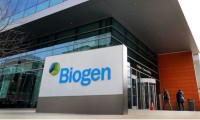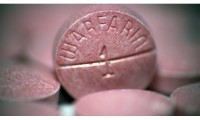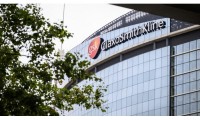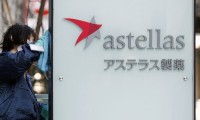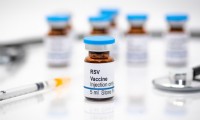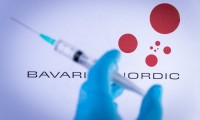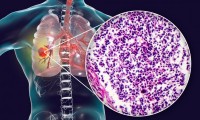-
Novavax Posts Surprise Q2 Profit, Hinges Hopes on Updated COVID Shot
- Source: drugdu
- 249
- August 10, 2023
-
Merck’s Pneumococcal Shot Claims Back-to-Back Phase III Wins
- Source: drugdu
- 124
- August 1, 2023
-
Biogen Boosts Neuro Pipeline with $7.3B Reata Buy Amid Layoffs
- Source: drugdu
- 98
- August 1, 2023
-
Octapharma Secures FDA Nod for Warfarin Reversal Agent Balfaxar
- Source: drugdu
- 141
- July 28, 2023
-
GSK Tamps Down Short-Term Expectations for RSV Shot Arexvy, but Still Boosts 2023 Guidance
- Source: drugdu
- 116
- July 28, 2023
-
Astellas Strikes Another Deal to Expand in Cancer, Partnering With PeptiDream
- Source: drugdu
- 115
- July 27, 2023
-
Bavarian Nordic Drops Out of RSV Vaccine Race with Phase III Flop
- Source: drugdu
- 119
- July 26, 2023
-
Bavarian Nordic Falls by RSV Vaccine Wayside After Phase III Failure
- Source: drugdu
- 113
- July 26, 2023
-
SN Bioscience’s Nano-Cancer Therapy Wins Orphan Drug Designation
- Source: drugdu
- 103
- July 25, 2023
-
GSK-Funded Report on Adult Vaccination Rates Finds Major Global Declines in Recent Years
- Source: drugdu
- 207
- July 21, 2023
your submission has already been received.
OK
Subscribe
Please enter a valid Email address!
Submit
The most relevant industry news & insight will be sent to you every two weeks.



